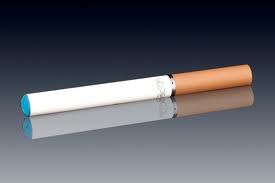New push at Capitol to outlaw electronic cigarettes for kids

• Defines a vapor product as a noncombustible tobacco-derived product that uses a battery or circuit to heat a liquid nicotine solution.
• Giving, selling or providing a vapor product to a minor would be a petty offense.
• A minor who buys, possesses or accepts a vapor product would be committing a petty offense.
• A minor using any form of false identification to purchase a vapor product would be committing a petty offense.
PHOENIX – To a state senator, nicotine is nicotine regardless of whether the product delivering it is chewed, smoked or inhaled as mist, and all forms should be illegal for minors.
SB 1209, authored by Senate Majority Whip Adam Driggs, R-Phoenix, would add electronic cigarettes to a list of products including cigars, cigarettes and chewing tobacco that are illegal for minors to possess.
“These new products have a lot of the same materials and the same concerns, so it’s basically just updating our current laws with modern changes in the industry,” Driggs said.
Similar bills have been proposed for the last several years but failed to pass both chambers.
“I think it’s a meritorious bill,” Driggs said. “We already have the underlying bill that we want to keep cigarettes and other tobacco products from our children.”
The Senate’s Judiciary and Commerce, Energy and Military committees unanimously endorsed Driggs’ bill this week, sending it to the floor by way of the Rules Committee.
Don Isaacson, who represents tobacco company Reynolds American, said electronic cigarettes aren’t intended to appeal to children.
“The main attraction (of electronic cigarettes) appears to be allowing people who currently smoke cigarettes to get off of smoking,” he said.
Isaacson noted that a recent law against selling hookah pipes to minors has been successful.
HB 2034, passed in 2012, made selling the pipes to minors or minors possessing them a petty offense.
As with the hookah pipe law, Driggs’ bill would make it a petty offense for minors to possess electronic cigarettes and for others to sell, provide or give them to minors.
Electronic cigarettes heat liquid solutions containing nicotine, which users inhale as mist. This does away with the smell, smoke and many of the harmful carcinogens in traditional cigarettes, said Ben Palmer, spokesman for Tobacco Free Arizona.
“A lot of folks think it’s safe,” he said.
However, electronic cigarettes can be just as dangerous for children, he said.
“It still mimics the behavioral aspects of smoking,” he said. “It looks too much like smoking and precipitates the notion that smoking is cool.”
Ray Story, CEO of the Tobacco Vapor Electronic Cigarette Association, said the Atlanta-based organization supports a ban for minors.
“We understand that tobacco products are adult products,” Story said.
Companies that are members of Story’s association aren’t allowed to sell to minors or package or market their products in ways that could appeal to teens, but laws would ensure that all companies refrain from selling to minors, he said.
New Hampshire, Maryland, New York and some counties in Washington have explicitly banned the sale of electronic cigarettes to minors.
Barry Aarons, representing Phoenix-based cigar company Prime Time International, said the company is considering moving into vapor-based cigarettes.
“We have a very strong enforced policy in our company against access to tobacco by any young people,” he said.
Devin Gusich, one of the owners of Phoenix-based electronic cigarette vendor Smoking Vapor, said his company doesn’t sell to minors. Visitors cannot enter Smoking Vapor’s website without confirming that they are 18 or older, and the company’s mall kiosks check customers’ identification.
Gusich stressed that electronic cigarettes should be used as a healthier way for adults who already smoke to use or ease off of nicotine, not as a way to make cigarettes seem cool.
“I’m not trying to get people to smoke cigarettes,” he said. “If we were allowed (to sell to minors), I wouldn’t.”















